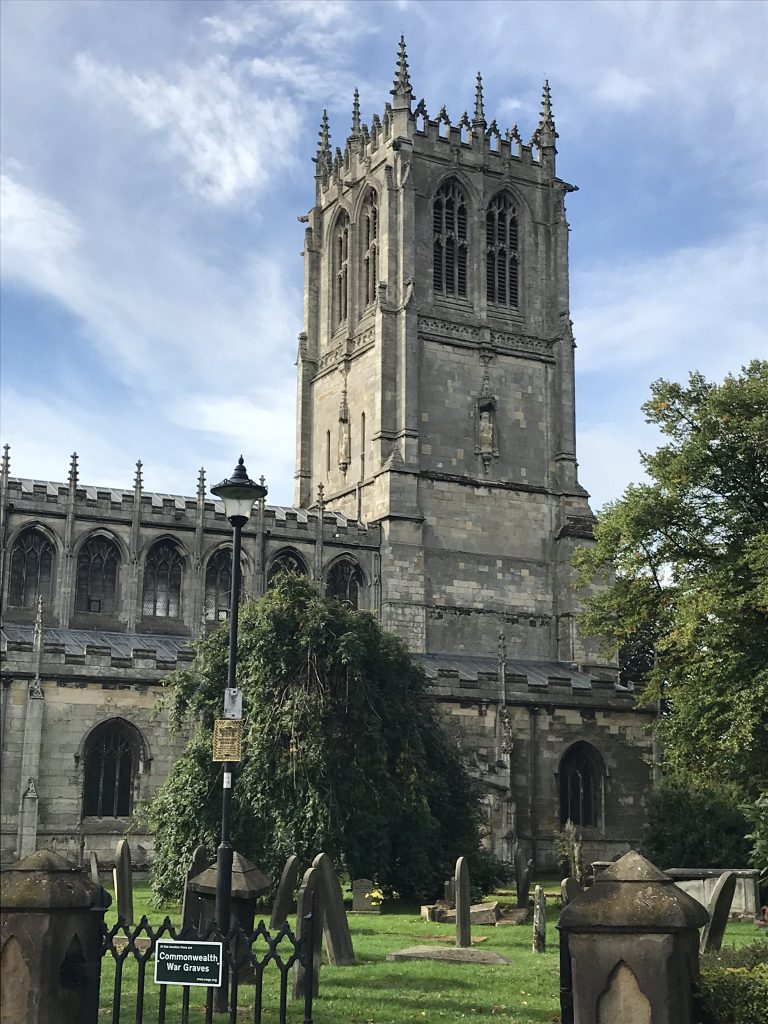It is now three months since I addressed the last Diocesan Synod. In my presidential address on 24 November 2018, I spoke about the four-headed beast threatening our diocese, something that I think we are all familiar with now. Just in case you need a reminder, the four-headed beast is:
Attendance trends: numbers are still falling, or at best are barely holding their own
Significant financial challenges across most parishes and for the Diocesan Board of Finance: budgets are in deficit
In many places church structures (buildings, rules and compliance regulations) are not what we would choose
The demographics of our congregations are imbalanced and we depend too heavily on our older members
My address in November focussed on B for budgets. With the Diocesan budget for 2019 needing approval, this head was snarling most ferociously. You can watch my full presidential address online at https://www.youtube.com/watch?v=n2fqLAki-n0.
A Task and Finish group commissioned by the Bishop’s Council has been meeting on average every two weeks since October 2018. It has been wrestling with the fact that, while at the end of 2018 we had 103 stipendiary incumbents in the Diocese of Sheffield, in fact (were it not for the sale of three properties), we could afford only 90 this year. But what is especially challenging for the Bishop’s Council is the knowledge that we cannot be certain of our capacity to maintain income levels. For this reason, the Task and Finish group is working on a plan for the deployment of our stipendiary clergy which assumes only 75 stipendiary incumbents and a drop from 12 to 6 deaneries. I am personally visiting every deanery in the first 6 months of this year, with other members of the senior staff team, to explain this situation and to invite comments and questions. I have so far been to Adwick le Street, Ecclesfield and Rotherham, with visits to Wath, Tankersley, and Snaith & Hatfield scheduled before Easter.
The group also commissioned a review of Church House, to ensure that, in light of the new strategy, our central function is well-placed to deliver. This review is now complete and its findings will be incorporated into the proposals now under consideration. From this point, the anticipated timeline is as follows:
By March 2019, the task and finish group will present a mature model for the deployment of fewer clergy (likely 75) to the Bishop’s Council (12th) and Diocesan Synod (23rd).
Assuming no substantial amendments are demanded from Council and Synod, we hope this model can then be circulated between Easter and June for consultation with PCCs, with a request for responses by July 5th, to inform Diocesan Synod on
July 13th
This proposal will then be worked up into an implementation plan, to be published in the autumn, for implementation to begin in 2020 — I hope the new plan will be adopted by Diocesan Synod in November this year.
Whatever the final form of the agreed proposal, the transition from where we are to where we want to be will not take place overnight. There will be no sudden drop in the number of stipendiary clergy. In fact, we will have to inch our way towards a new model. Progress will be slower than we would like and will be more expensive too, because of the nature of the common tenure and freehold protection which stipendiary clergy enjoy. This is probably a good thing, in God’s providence: it will prevent us from rushing into anything. We will continue to offer updates on this through a number of outlets as the weeks progress.
Meanwhile, let me reaffirm my sense of God’s providence here: although it is true that we are having to respond to financial pressures, the real impetus is, I am convinced, coming from the Holy Spirit. We are being called by God to be renewed in our
dependence on his grace and power, to be released as the baptised people of God into the whole mission of God, and to be rejuvenated so that we can serve every local community across the Diocese more vigorously and effectively. We are being called to a renewal of our dedication to the Lord Jesus and to one another in his service, and to recover the sense of mission which is at the heart of God’s Church. Those of us who have been called to ordained ministries are being thrown back upon the One who has called us. At our ordination as Deacons and / or Priests we were reminded:
The Church is the Body of Christ, the people of God and the dwelling-place of the Holy Spirit. In baptism the whole Church is summoned to witness to God’s love and to work for the coming of his kingdom. To serve this royal priesthood, God has given a variety of ministries. Deacons are ordained so that the people of God may be better equipped to make Christ known. Priests… share with the Bishop in the oversight of the Church, delighting in its beauty and rejoicing in its well-being… With the Bishop and their fellow presbyters, they are to sustain the community of the faithful by the ministry of word and sacrament, that we all may grow into the fullness of Christ and be a living sacrifice acceptable to God.
I am confident that, in God’s grace, this process will enable all of us, lay and ordained, to fulfil our callings more fully, so that the Church of God in the Diocese of Sheffield can fulfil its vocation more fully too.
+ Pete
Posted by Bishop Pete on 26th February 2019

